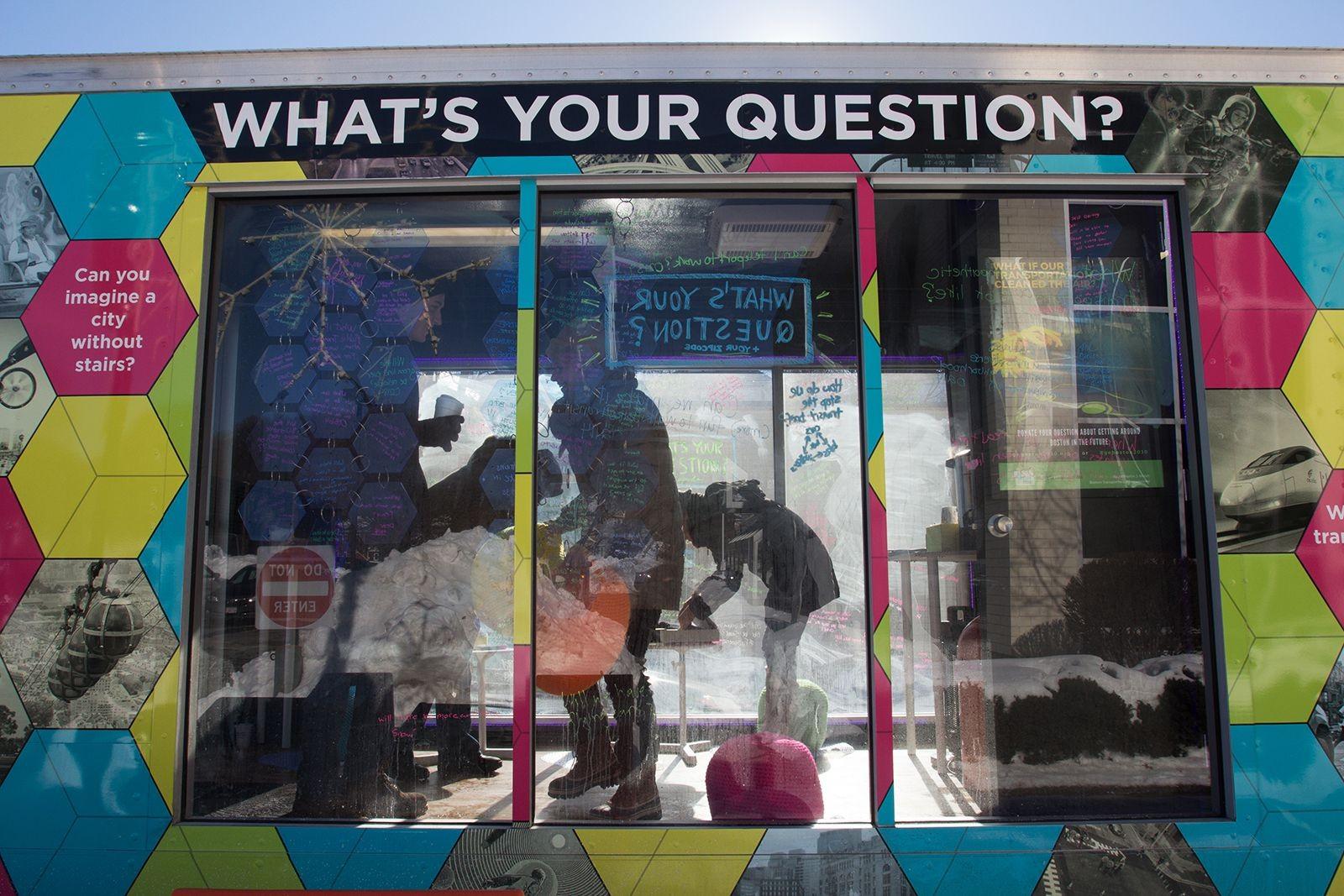Boston Mayor Martin Walsh launched the on-the-ground phase of the Go Boston 2030 transportation initiative on Thursday, allowing residents and commuters a chance to voice their questions about the future of transportation in and around the city.
The Go Boston 2030 initiative was established by the Boston Transportation Department to create a transportation plan for the future of the city, according to a Thursday press release. The “What’s your Question” truck began touring the city on Jan. 29 and will continue until Feb. 7, taking questions from members of the community who stop by the glass truck during business hours.
The initiative combines technology, grassroots activity and community engagement to understand the needs and wants of the city, Walsh said in the release.
“We’re hearing directly from a broad group of people about what their needs and hopes are for Boston’s transportation future,” he said. “Together, through this initiative, the public and city officials will build a bold and innovative plan that will improve mobility for residents, commuters and visitors.”
People can submit their questions either in person or online, and then track the status of their inquiry online through the Go Boston 2030 website. Transportation Commissioner Gina Fiandaca said in the release it is time to make changes to Boston’s transportation system.
“We are developing a big vision as well as a concrete list of immediate improvements and long term investments to ensure that our transportation system is safer, greener, and more equitable for everyone traveling in Boston in the future,” she said. “Working with residents and business, this vision will establish common goals for shaping mobility in the future.”
After the tour, the questions will be reviewed and turned into themes to add to a long-term action plan to be released in the spring of 2016, the release stated. More opportunities for public engagement will take place in the form of public forums, where the results of the initiative will be discussed to form an innovative transportation plan.
On the Allston/Brighton stop on the tour, Alice Brown, the project manager for the Go Boston 2030 Initiative, was inviting passersby to stop by the truck for a cup of hot chocolate or tea.
“The question truck is visiting every community in the city of Boston,” she said. “We’re going around to neighborhoods over two shifts a day for ten days, because we really want to make sure that voices all across the city are heard and … not everybody’s going to be able to go online or tweet at us, and we want to make sure we’re reaching everyone.”
The questions submitted will contribute to the themes presented in the vision forum, where the community’s input will be valued as equally as data, Brown said.
“We’re going to be holding a vision forum in March, and that’s designed to take the questions and translate them into a potential vision to the city,” she said. “We want it to be available to the public, but rather than coming in with just a bunch of data, we want to have the city’s view as well.”
Several people who stopped by the North End stop of the tour said the truck offers an interesting opportunity for them to voice their opinion on transportation in Boston.
Devin Weaver, a sophomore in Boston University’s College of Arts and Sciences, said the truck allows for people to voice their opinions on transportation changes that may be necessary if Boston is chosen to host the summer 2024 Olympics.
“It’s great that everybody’s going to be able to come out and give their opinion, because the Olympics are coming and obviously transportation is going to be a big part of that,” he said.
Rebecca Jagga, 38, of Worcester, asked about expanding train routes, and said the truck offers a good way to get the community engaged, even for those not living directly in Boston.
“I asked if the green line was going to be extended to go further than Heath Street,” she said. “I saw a couple of questions about expanding the green line. [The truck] is a good way to get the movement going and get people interested.”
Mari Fletcher, a freshman in the College of General Studies, said she had concerns about the cost of riding the T, especially for students.
“I wanted to know when the T was going to be cheaper,” she said. “For students, it really adds up and living on a college budget, you really need to save where you can.”
J.D. Capelouto and Paige Smith contributed to the reporting of this article.



















































































































Diego Torres-Palma • Feb 4, 2015 at 12:56 am
The biggest issue is many companies don’t have data scientists or engineers to parse and build models off the data. This startup is looking to solve one piece of this by solving the data problem from the parking industry. The challenge is data acquisition and getting people who can turn this from data into predictive analytics.